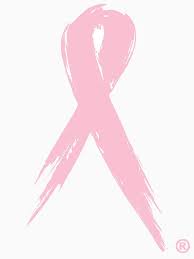Get your mammogram. Studies have shown that your chances of surviving breast cancer are greater if you have regular screenings. Yearly mammograms are recommended after the age of 40 and earlier if you have certain risk factors, such as family history, obesity, and dense breast tissue. Unfortunately, dense breast tissue can also make mammograms less accurate. A combination of ultrasound, MRI and mammogram may be required, and additional imaging or a biopsy may be recommended. Some states now have laws requiring that mammography reports include whether or not women have dense breast tissue.
Do not wait for your yearly mammogram if you notice a lump, swelling, dimpling, puckering of skin, nipple discharge or a new pain in your breast. Contact a health care provider immediately.
It could be in your genes. About five to 10 percent of all breast cancers are hereditary. If any immediate family members (mother, daughter, or sister) are diagnosed with breast cancer, your risk doubles. If there is more than one immediate relative, your risk increases three to four times. You can check for genetic mutations, called BRCA 1 and BRCA 2, through a simple blood test. If diagnosed with these mutations, your risk of breast and ovarian cancer increases by 50 to 80 percent, and it may be recommended that you have both breasts and ovaries removed to prevent cancers. Remember insurance companies cannot discriminate against you based on positive results.
Breastfeeding lowers the risk of breast cancer. Breastfeeding for one to two or more years is beneficial. Even breastfeeding for less than a year has a modest benefit. Health benefits of breastfeeding go beyond breast cancer. It is also shown to prevent Type 2 diabetes and ovarian cancer.
Post-menopause and obesity risk factors. Studies have shown that being postmenopausal and overweight (BMI> 30) increases the risk of estrogen receptor positive breast cancer by 30 to 70 percent. The reason is that in postmenopausal women, estrogen gets stored in fat. Increased insulin levels are also said to increase the risk of breast cancer. Losing even four to 11 pounds lowers your risk by 20 percent.
New advances in treatment. There are exciting new advances in estrogen receptor positive, triple negative and HER2/neu positive breast cancers. Pertuzumab and Kadcyla® were approved for advanced HER2/neu positive cancers. Pertuzumab was just approved to be given prior to surgery to shrink the tumor. Studies have also shown that premenopausal women benefit from 10 years of Tamoxifen.
Overall, deaths from breast cancer have reduced by 30 percent since the 1990’s. We attribute this to early detection from screening and advances in treatment.
Have you scheduled your mammogram yet?
Dr. Lakshmi Kannan is a physician on Methodist Charlton Medical Center medical staff and an oncologist with Texas Oncology–Methodist Charlton Cancer Center.










The number 1 thing women “need to know about breast cancer” is that the pro-mammogram perspective is NOT validated by sound science but only by medical dogma, flawed studies, and politics (read Rolf Hefti’s ebook “The Mammogram Myth: The Independent Investigation Of Mammography The Medical Profession Doesn’t Want You To Know About”). Hence, no surprise here that an orthodox cancer doctor peddles mammography to women.
Thanks for sharing!